Many times, even experienced affiliate marketers and PPC specialists find themselves in a situation where their ads or advertising campaigns on Google Ads bring in visitors who are not interested in the offer they are promoting. While this problem may be evident to some, not everyone understands why their advertising budget is being wasted in this manner. That's why, in this article, the YeezyPay team will examine the reasons why certain ads attract the wrong type of visitors (untargeted traffic) who ultimately fail to convert on the offer.

To address these issues, you can block irrelevant queries by adding the "Bounce Rate" column in the "Keywords" tab. By sorting all queries with a bounce rate greater than 50%, you can identify the problematic keywords that need attention.
It is important to add irrelevant keywords to your list of negative keywords.
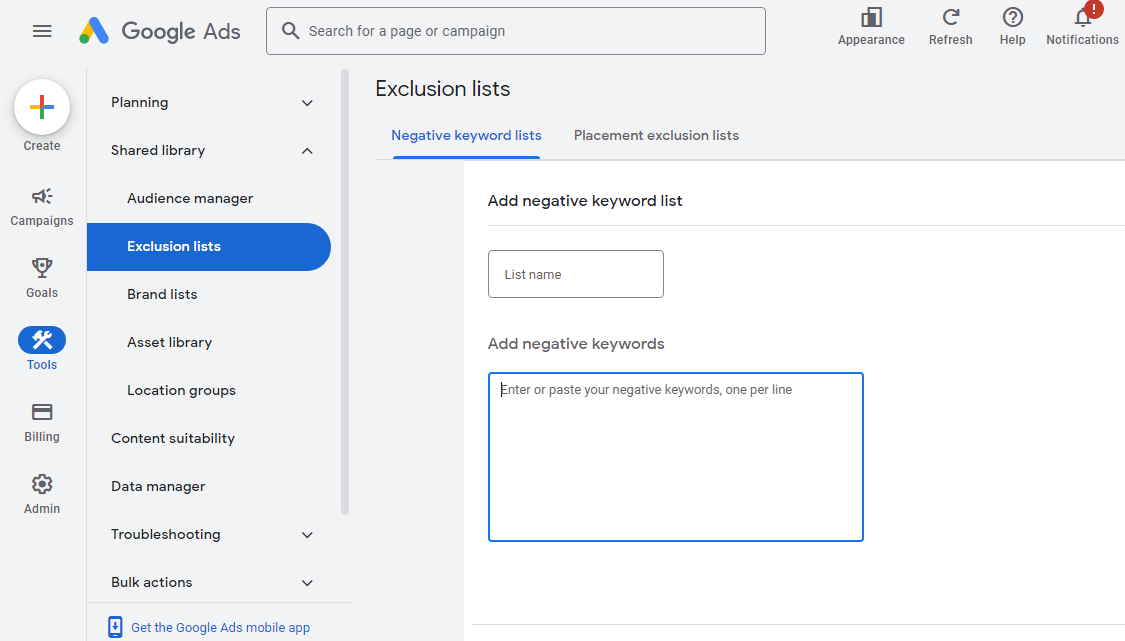
The reason behind this issue is that, on mobile traffic, users often accidentally tap on ads while attempting to close them due to the small size of their screens, resulting in unintended visits to landing pages. To minimize the occurrence of such incidents, it is important to create a list of excluded ad placements during the campaign setup phase.
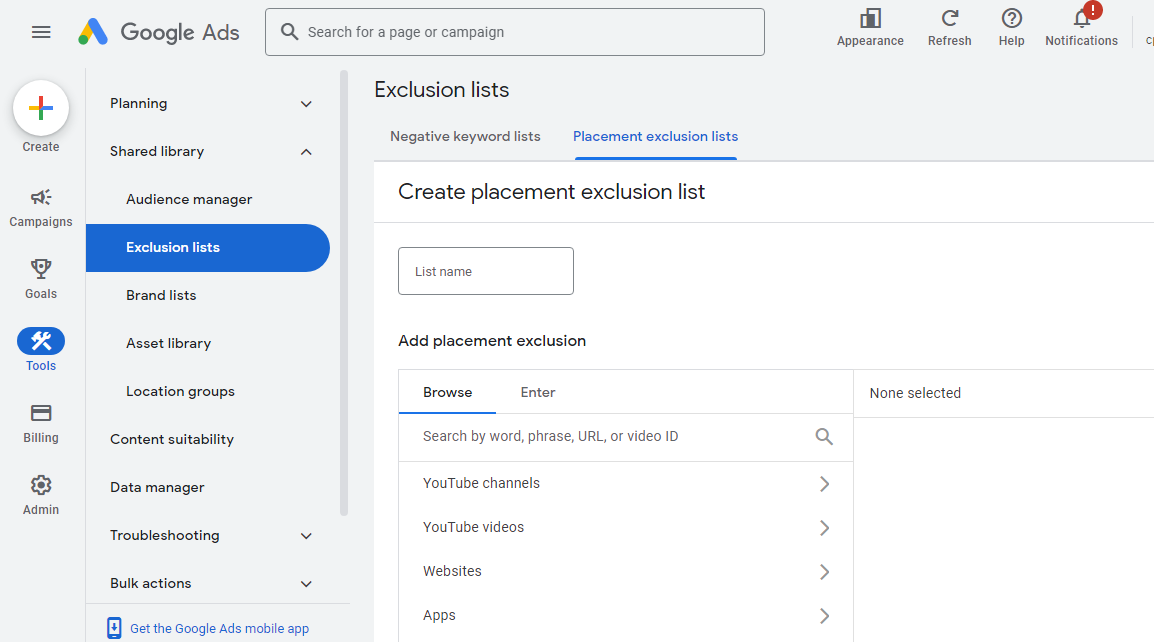
In addition, it is recommended to disable certain categories of websites and topics in the additional settings of your ad campaign. This helps prevent the influx of untargeted traffic that may come from these categories.
Let's take the example of promoting an online casino that is only licensed in one US state and has its own mobile app. These unique characteristics allow the affiliate to develop a strategy and set up targeting appropriate settings. In this case, it's important to:
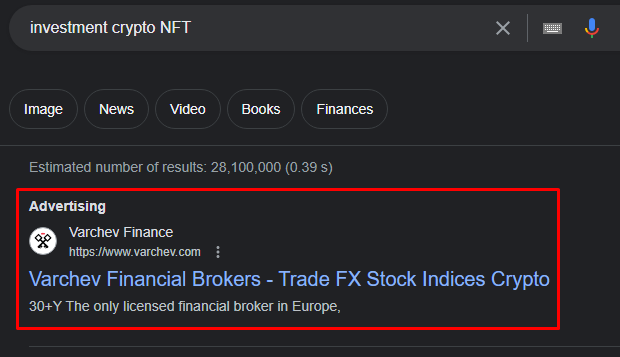
This is a mistake that is commonly made by affiliates and media buyers who are driving traffic to niches that have restrictions or limitations imposed by Google's rules and advertising policies. Because they want to avoid having their ad campaigns or accounts blocked, these affiliates often try to convey information to the target audience in a way that disguises the true nature of their offer. For example, in the cryptocurrency industry, marketers may have to promote investment or trading platforms by presenting them as educational resources, webinars, or events featuring cryptocurrency enthusiasts.
In recent years, affiliate marketers and advertisers have found a popular strategy to promote grayhat offers without facing moderation or account bans. They achieve this by using Google Ads agency accounts, which have gained a high level of trust from Google. YeezyPay is known as one of the top services that provide access to these trusted agency accounts. YeezyPay also offers the extra advantage of recovering your funds if your ad account does get banned.
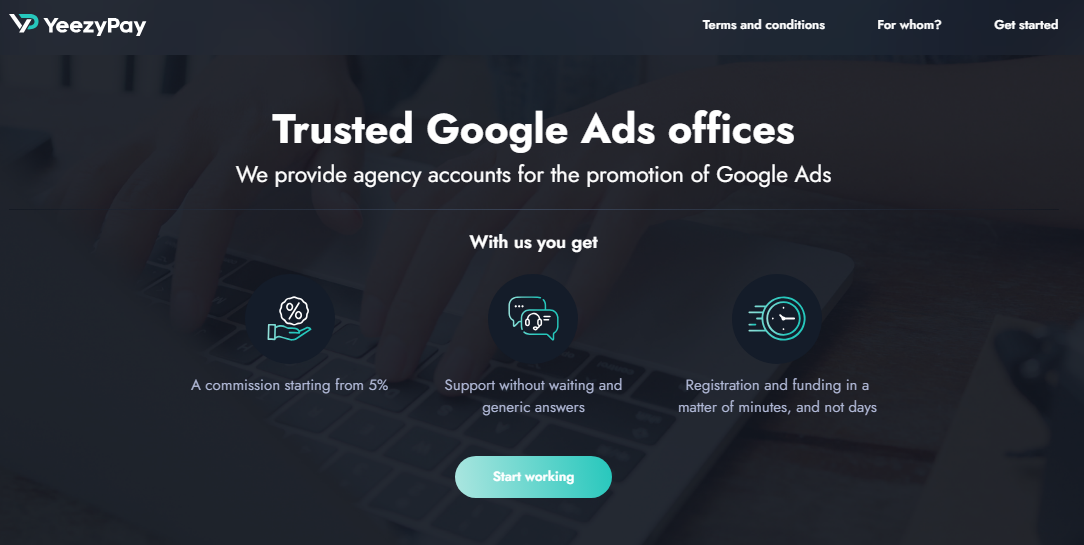
When users encounter such a landing page, they may feel misled or frustrated. Some users may choose to close the tab and move on, while others might still engage with the page, hoping to find the promised content or offer. However, this can result in a wasted advertising budget for the affiliate.
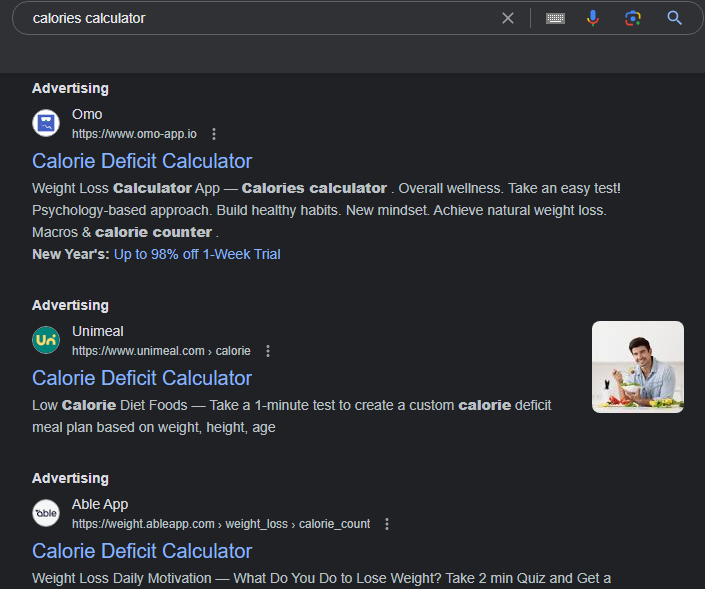
For example, let's say a user clicks on an ad that mentions a "calorie calculator," but when they land on the page, there is no calculator available. Instead, they are presented with unrelated content or offers. In such cases, users are likely to feel disappointed and may leave the page.

To avoid wasting your advertising budget on the wrong audience, it's important for affiliates to carefully study the keywords and phrases used in their ad campaigns. Regularly compiling lists of negative keywords and ensuring that the ads and landing pages or pre-landing pages align with the relevant keywords are key steps to take.
If you want to improve the chances of your campaigns getting approved during the moderation process, especially if you're working with grayhat niches, and if you want to keep your account active for longer, it's a good idea to use reliable and high-quality ad accounts like the trusted Google Ads agency accounts from YeezyPay.
Possible Reasons Why Google Ads May Generate Untargeted Traffic
Let's take a closer look at some of the main reasons why Google Ads advertising campaigns may end up generating untargeted traffic.Irrelevant keywords (semantics)
To ensure that you attract only highly targeted users, it is crucial to go beyond simply gathering keywords and launching an advertising campaign based on those key queries. It is equally important to continuously optimize your key queries and prevent the ones that waste your budget while attracting the wrong audience. Typically, these problematic key queries tend to have a bounce rate of over 50%.To address these issues, you can block irrelevant queries by adding the "Bounce Rate" column in the "Keywords" tab. By sorting all queries with a bounce rate greater than 50%, you can identify the problematic keywords that need attention.
It is important to add irrelevant keywords to your list of negative keywords.
Targeting poor-performing ad placements and platforms
Based on the statistics from advertising campaigns of its users, YeezyPay, a platform which provides access to trusted agency advertising accounts for Google Ads recommends that affiliates filter out low-quality "junk" traffic originating from mobile devices. This recommendation is especially relevant for affiliates targeting mobile devices, specifically mobile applications.The reason behind this issue is that, on mobile traffic, users often accidentally tap on ads while attempting to close them due to the small size of their screens, resulting in unintended visits to landing pages. To minimize the occurrence of such incidents, it is important to create a list of excluded ad placements during the campaign setup phase.
In addition, it is recommended to disable certain categories of websites and topics in the additional settings of your ad campaign. This helps prevent the influx of untargeted traffic that may come from these categories.
Incorrect targeting settings
Before launching an advertising campaign, it's crucial for the affiliate to gather detailed information about the target audience and the different ways they might search for the product or service they're interested in. This goes beyond just knowing basic demographics – it includes factors like the time when ads should be shown, the specific location to target, the type of device people are using, and more.Let's take the example of promoting an online casino that is only licensed in one US state and has its own mobile app. These unique characteristics allow the affiliate to develop a strategy and set up targeting appropriate settings. In this case, it's important to:
- Collect keywords that mention the state's name, major cities within that state, popular slot games, and other gambling offerings provided by the advertiser.
- Identify negative keywords that should be excluded to avoid irrelevant traffic.
- Set restrictions to show the ads only within the licensed state.
- Specify the specific mobile devices on which users can install the app and make their first deposit.
Poorly designed headlines, descriptions, and ad graphics
One of the reasons why you might attract the wrong audience is if your ads have headlines, descriptions, or graphics that are poorly designed. This can happen if your messaging is too general or unclear, leading to confusion or disinterest among your target audience. It can also happen if your ad title doesn't align with what users are searching for, or if your ad fails to properly communicate what users need.This is a mistake that is commonly made by affiliates and media buyers who are driving traffic to niches that have restrictions or limitations imposed by Google's rules and advertising policies. Because they want to avoid having their ad campaigns or accounts blocked, these affiliates often try to convey information to the target audience in a way that disguises the true nature of their offer. For example, in the cryptocurrency industry, marketers may have to promote investment or trading platforms by presenting them as educational resources, webinars, or events featuring cryptocurrency enthusiasts.
In recent years, affiliate marketers and advertisers have found a popular strategy to promote grayhat offers without facing moderation or account bans. They achieve this by using Google Ads agency accounts, which have gained a high level of trust from Google. YeezyPay is known as one of the top services that provide access to these trusted agency accounts. YeezyPay also offers the extra advantage of recovering your funds if your ad account does get banned.
Misleading landing pages
Another reason for attracting the wrong audience is when the landing page associated with the ad contains misleading information. This can happen when the description, headings, or images in the ad do not accurately reflect the actual offer, or if the landing page fails to deliver on the promises made in the ad.When users encounter such a landing page, they may feel misled or frustrated. Some users may choose to close the tab and move on, while others might still engage with the page, hoping to find the promised content or offer. However, this can result in a wasted advertising budget for the affiliate.
For example, let's say a user clicks on an ad that mentions a "calorie calculator," but when they land on the page, there is no calculator available. Instead, they are presented with unrelated content or offers. In such cases, users are likely to feel disappointed and may leave the page.
Conclusion
In this article, we've discussed some common reasons why your Google Ads campaigns can end up bringing in untargeted traffic that doesn’t convert. However, it's important to note that this list is not exhaustive, as the specific reasons can vary depending on factors like the niche, offer, targeted geos, and other variables.To avoid wasting your advertising budget on the wrong audience, it's important for affiliates to carefully study the keywords and phrases used in their ad campaigns. Regularly compiling lists of negative keywords and ensuring that the ads and landing pages or pre-landing pages align with the relevant keywords are key steps to take.
If you want to improve the chances of your campaigns getting approved during the moderation process, especially if you're working with grayhat niches, and if you want to keep your account active for longer, it's a good idea to use reliable and high-quality ad accounts like the trusted Google Ads agency accounts from YeezyPay.





